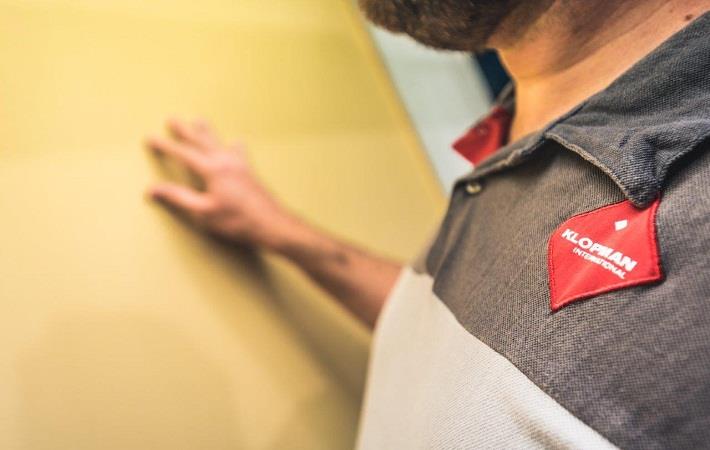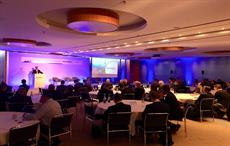
The greenwear range was a concrete expression of the company’s attention to the environment and the investment in production that makes Klopman a pioneer in the production of sustainable fabrics for workwear. Techtextil was the ideal occasion for the company to announce the 1.5 million meters of green fabric it produced in 2018, with significant growth forecasts for the coming years, according to a press release by the company.
To further emphasise its vocation as a sustainable company and to promote a virtuous attitude among its customers, Klopman gave its visitors flower seeds as part of the #Beethechange initiative. A symbolic gift to remind participants of the importance of protecting bees, whose number is drastically reduced from year to year. Without them, 60 per cent of fruit and vegetables would disappear, as would about 25,000 kinds of flowering plants. Planting a flower is a small and symbolic contribution to safeguard species and the environment that surrounds us.
The K-Flame range of fabrics is available in two compositions: the K-Flame Pro, made with modacrylic fibre to combine maximum efficiency and performance, available in different weights: 175, 265 and 320 g/sq metre and the K-Flame Xtra. The latter is made with aramid fibres and guarantees an extremely high level of safety for workers, available in five different weights: 165, 180. The composition of the material allows optimal moisture management combined with an extraordinary feeling of comfort, particularly in tropical climates. The product is designed specifically for the needs of the petrochemical, chemical and metallurgical mining industry.
The K-Flame range has recently undergone further studies by certification bodies, which have decreed the excellent performance of the fabric in terms of breathability and absorption of body moisture. New tests on K-Flame flame-retardant fabric demonstrate incomparable performances in terms of breathability and body moisture absorption, making them the ideal choice for hot and humid climates.
The production of the fabrics is based on raw materials that respect the environment and people: polyester made from recycled plastic bottles, wood pulp, cotton certified according to the Fairtrade and BCI standards (Better Cotton Initiative) which take into account the conditions of the producers in developing countries and organic cotton, cultivated in the absence of chemical substances. A very important feature, since cotton uses 2.5 per cent of the world’s cultivated land but consumes 16 per cent of pesticides. Using ecological polyester also means giving new life to a plastic bottle that would take over 1000 years to decompose, saving 45 per cent of energy, 20 per cent of water and 30 per cent of emissions compared to normal polyester.
Klopman also recently obtained the maximum level (class 3) of the STeP - Sustainable Textile Production certification.
Klopman fabrics are certified Oeko-Tex 100. The Oeko-Tex 100 standards regulate and control the use of harmful substances in textile production. Approval under this standard ensures fabric poses no risk to human health and will provide skin-friendly clothing, even for babies with Oeko-Tex 100 Class 1.
Klopman also offers its customers the possibility of using recycled polyester rather than virgin polyester. The yarn is made with PET water bottles. The recycled polyester is applicable to all Klopman product ranges, guaranteeing the customer Klopman’s high quality standards in terms of comfort, image and durability, while increasing sustainability and respect for the environment.
Klopman’s packaging is made of recyclable cardboard, and all paper materials used for communication are printed on FSC paper in order to support the promotion of a global forest management approach that is adequate from an environmental point of view, and advantageous from a social and economically viable point of view. (PC)
Fibre2Fashion News Desk – India

